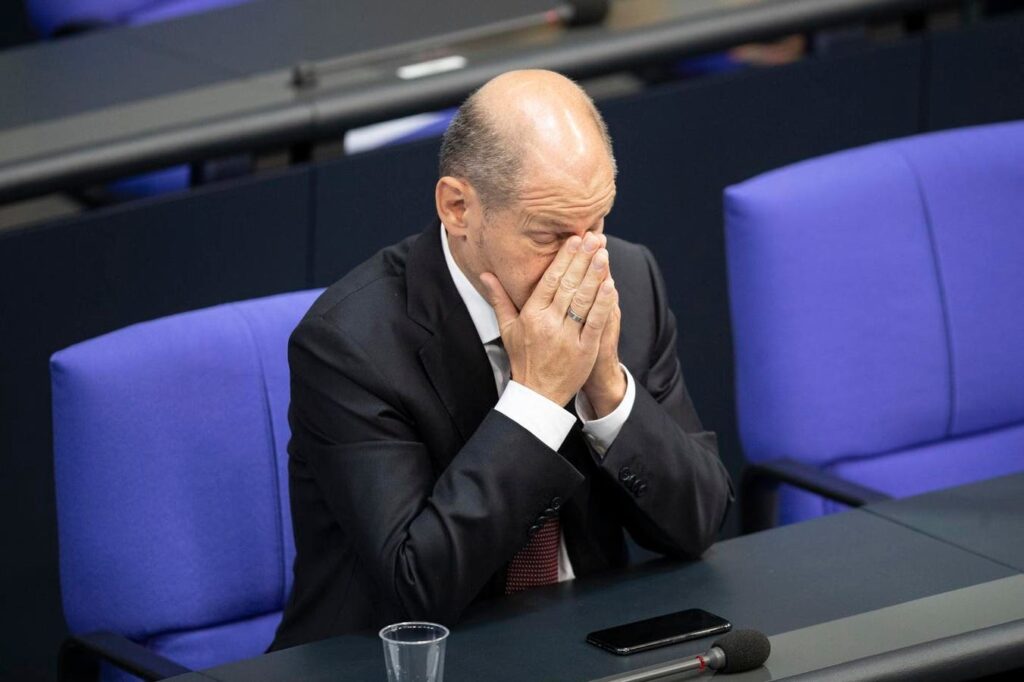Just two years ago, Germany’s Chancellor Olaf Scholz made a speech in the Bundestag organized around the theme of the ‘Zeitenwende’, which to translate means a period of transition or regime change, or more scientifically a paradigm shift (in geopolitics). It marked a high point in Scholz’ chancellorship. Ever since he has done everything he can to not live up to the challenge of the Zeitenwende, and on my last recent visit to Berlin, I found business people and policy makers despondent.
Germany is not alone in going through its Zeitenwende. Taking an international view, the phrase I increasingly use is ‘Interregnum’, a word inspired by the period between the two King Charles reigns (Charles I was captured in 1647 and then Charles II was ‘restored’ in 1660) when England experimented with a republican democracy.
The Interregnum represented an interruption of the established order of things, and a period of turmoil and some experimentation. Ironically, the initial phase of the 17th century Interregnum was initially a period of democratic innovation, and aptly, today we enter a geopolitical Interregnum in the company of the third king Charles.
To reiterate, my view of the Interregnum is that it has three phrases at least and here I am heavily influenced by Thomas Kuhn’s Logic of Scientific Revolutions. The first centres around the crises of the old, crumbling order notably in debt and democracy, the second phase around social, legal, and economic superstructures built around new technologies (AI, quantum) as well as the evolving contours of the multipolar world order, and then thirdly, the acceptance and coalescence of new world institutions, governments, and companies around this new world order.
In this context, the question that the under-siege German Chancellor might like an answer to is ‘how long will all of this take?’ or even ‘are we there yet?’ as impatient children might demand of their parents on a long trip.
A first step is to date the starting point of the ‘Interregnum’. Granted that the era of globalization started with the fall of communism (the Berlin Wall) I would bookend it with the July 2020 imposition of the National Security Law by China on Hong Kong, effectively snuffing out Hong Kong’s democracy, and emblematic role as a hub of globalization.
Without going into elaborate detail as to how long the ‘Interregnum’ could take, there are various literatures that might help point the way. One that is popular in the US is the ‘Fourth Turning’ idea as outlined by Neil Howe and William Strauss, that posits that cycles in geopolitics and economics are consistent with 80 year human cycles (broken down into four twenty year phases). So, by their estimation, the next, positive geo-economic phase will start in the late 2030’s.
That date is consistent with other rules of thumb. Samuel Huntington’s waves of democracy theory points to febrile periods of close to twenty years between the peak of one wave of democracy and the start of the next wave. In addition, if one of the two major economies – the US or China was to endure a debt crisis, that is a process (rather than event) that could – to use history as a benchmark, take a good seven years to resolve itself.
The idea that an economic or specifically a debt crisis could shape the ‘next world order’ is consistent with the ideas of Minsky and Kondratieff cycles. Another associated literature would suggest that long run geopolitical ‘paradigms’ are associated with empires (the first wave of globalization was driven by the British Empire). Empires tend on average to last for 250 years, with Rome being the most impressive. America’s empire, built around an unrivalled financial infrastructure, military power and corporate giants, remains intact, but we should worry that Donald Trump may soon play the role of Nero.
The length of paradigms or regimes is something I want to devote more time to, but my instinct is that we are only into the first two years of a near fifteen year ‘Interregnum’.
One interesting aspect of this is the alarming reversal of many upward trends in progress that we had come to take for granted – China’s fast economic growth has stopped, human development and longevity in the US has turned down. New trends and players are emerging – Poland is the most exciting economic and political player in Europe now, the Baltic states are geopolitical micro-powers and Saudi Arabia is shifting from a strict Islamic state to an authoritarian, ‘luxury’ power.
Meanwhile, in Germany, the question is can it endure another fifteen years of Zeitenwende?
Read the full article here


